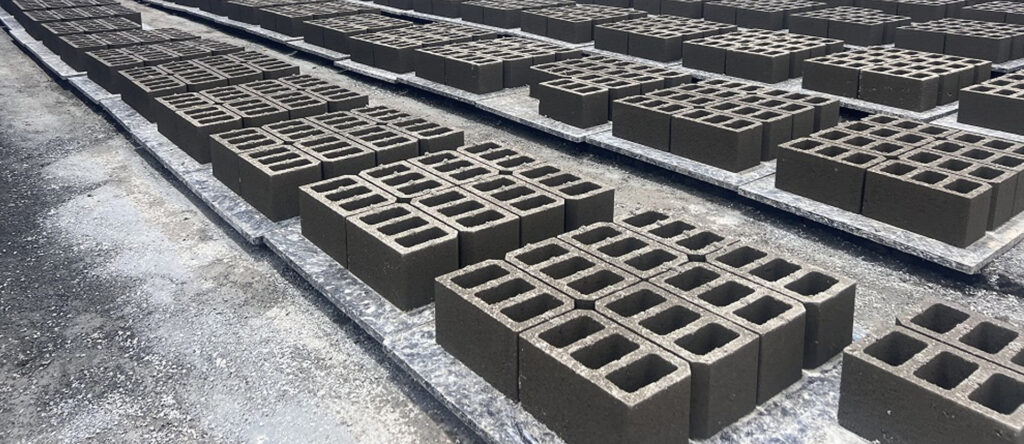Masonry blocks (also known as concrete blocks, cement blocks, or CMUs—short for Concrete Masonry Units) are large, solid or hollow units made of concrete used in the construction of walls, foundations, and other structural or decorative elements. These blocks are commonly used in both residential and commercial construction due to their strength, durability, and versatility. They come in various sizes and configurations, and can be used for load-bearing or non-load-bearing applications.
Here’s a detailed overview of masonry blocks:
1. Composition
Masonry blocks are primarily made from:
- Cement: The main binding agent in the concrete mixture.
- Aggregates: Typically sand, gravel, crushed stone, or other fine and coarse materials used to provide strength and volume.
- Water: Used to activate the cement and form the solid mixture.
- Admixtures: Sometimes, chemical additives are included to improve specific properties, such as setting time, workability, or durability.
Some masonry blocks may also incorporate other materials for specialized applications:
- Fly Ash or Slag: Used to enhance sustainability by replacing part of the cement with industrial by-products.
- Lightweight Aggregates: Such as expanded clay, shale, or pumice, which are used to create lightweight masonry blocks, reducing the overall weight of the block.
- Reinforcement: Some masonry blocks may include steel reinforcement, especially for load-bearing walls.
2. Types of Masonry Blocks
Masonry blocks come in several types, depending on their intended use and features:
a. Solid Blocks
- Solid Concrete Blocks: Made from solid concrete without any voids or hollow spaces, these blocks are dense, heavy, and used in load-bearing walls and foundations.
- Uses: Commonly used for exterior walls, load-bearing walls, and structural elements.
b. Hollow Blocks
- Hollow Concrete Blocks: These blocks have one or more hollow cores that reduce their weight and improve their insulating properties. The hollow cores can be rectangular or cylindrical, depending on the block’s design.
- Uses: Ideal for non-load-bearing walls, partition walls, and applications where thermal or acoustic insulation is important.
c. Insulated Concrete Blocks
- These blocks incorporate insulating materials like expanded polystyrene (EPS) or polyurethane within the concrete, providing both thermal and acoustic insulation.
- Uses: Widely used for energy-efficient buildings, especially in climates where temperature regulation is a concern.
d. Interlocking Blocks
- These masonry blocks are designed with interlocking features that help them fit together without mortar, similar to paving stones. They are often used in construction projects that aim for faster installation.
- Uses: Typically used in non-load-bearing walls, garden walls, or temporary structures.
3. Manufacturing Process
The manufacturing process of masonry blocks generally follows these steps:
- Mixing: The ingredients (cement, aggregates, water, and admixtures) are thoroughly mixed to form a uniform concrete mixture.
- Molding: The concrete mixture is poured into molds, which give the block its shape and size. The molds are designed to produce different block types, such as solid or hollow blocks.
- Vibration and Compaction: The concrete is vibrated or compacted to eliminate air pockets and ensure a dense, solid block.
- Curing: The blocks are allowed to cure under controlled conditions, usually by steam or in a curing chamber, for a specified period (typically 24-48 hours). Proper curing is essential to develop the blocks’ full strength.
- Quality Control: After curing, blocks are inspected for quality, consistency, strength, and size, and tested to meet required standards.
4. Advantages of Masonry Blocks
- Strength and Durability: Masonry blocks are strong and durable, capable of withstanding heavy loads, high impact, and exposure to harsh weather conditions.
- Fire Resistance: Concrete blocks have a high resistance to fire, providing added safety in both residential and commercial buildings.
- Sound Insulation: Due to their mass and density, masonry blocks help reduce the transmission of sound, making them ideal for use in noise-sensitive areas like residential buildings, schools, or offices.
- Thermal Insulation: Especially when using lightweight or insulated blocks, masonry blocks can help in maintaining a stable indoor temperature, improving energy efficiency.
- Low Maintenance: Once installed, masonry blocks require minimal maintenance. They are resistant to pests, rotting, and deterioration, unlike wood or other organic materials.
- Cost-Effective: Compared to brick or natural stone, masonry blocks tend to be less expensive, making them an economical choice for large-scale projects.
- Speed of Construction: The size and shape of masonry blocks allow for faster construction compared to smaller, more labor-intensive materials like bricks.
5. Applications of Masonry Blocks
Masonry blocks have a wide variety of applications in the construction industry, including:
- Load-Bearing Walls: Solid or reinforced blocks are commonly used for structural walls in both residential and commercial buildings.
- Non-Load-Bearing Walls: Hollow blocks are often used for internal partition walls and dividers.
- Foundations: Concrete blocks are ideal for foundation walls, especially when reinforced for added strength.
- Retaining Walls: Masonry blocks are often used for retaining walls to hold back soil and prevent erosion, especially in landscaping and civil engineering projects.
- Boundary Walls: Used for the construction of fences, gates, and boundary walls for privacy and security in residential or commercial properties.
- Exterior Walls: Often used for exterior walls of buildings, both for aesthetics and insulation.
- Paving and Flooring: Some types of masonry blocks can be used for paving, such as in driveways, patios, and walkways.
- Fireplaces and Chimneys: Masonry blocks are often used in the construction of durable and fire-resistant fireplaces and chimneys.

